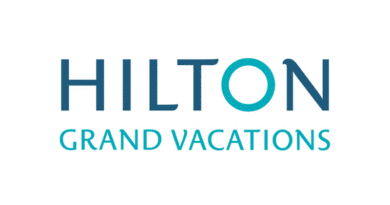Becoming Friends with Technology
In the world of my dreams, technology in the legacy timeshare resort management world would be as seamless at connecting everything as a Facebook account. Have you noticed when you go to some websites and apps now you don’t even have to go through the signup process? There’s a “sign up with Facebook” button and with one click you don’t have to fill out a form or do anything. You’re instantly good to go. This is the magic of technology, but there’s also a dark side to when it doesn’t work so seamlessly.
The dark, hard-to-connect corners of technology is where the legacy timeshare industry lives because in a perfect world one magical platform would do everything we need, but we live in reality. The reality of technology for this industry is that its needs aren’t simple enough for one piece of technology.
We need technology to manage the owners – collect their maintenance fees, track usage, track income from renting their units, securely maintain records, contact information and other database-driven needs. Then we also need it to showcase our rentals to the outside world, allow renters to book and all departments from accounting to the front desk to be able to communicate. In the golden days of legacy timeshare resorts, there was a single customer – the owner. They paid their maintenance fees and the resort was mostly sold out. According to Michelle Foy of National Hospitality Group, who has worked in the industry for more than 17 years, she still remembers in 1994 where at one resort they had technology to collect owner payments, but the usage had to be hand tracked across legal sheets of paper that would get highlighted when an owner checked in.
Now, imagine doing that with owners, multiple exchange companies, and renters coming in from direct bookings, Expedia, Airbnb, etc.
The beauty of technology is that it has the ability to put us all on the same playing field. The solo managed property can be displayed beside the local Hilton on Expedia or next to the random guy who owns a cabin on Airbnb. It creates limitless possibilities for customer acquisition and revenue, but it also creates hurdles to jump before reaching those limits.
Every time I get frustrated by technology it helps to acknowledge that these hurdles are industry-wide. The biggest player in the lodging world, Marriott International, acquired Starwood Hotels & Resorts in 2016 and in 2017 Marriott CEO Arne Sorenson estimated it would take until the end of 2018 to link all their technology.
Sorenson said that “technology would be, probably, the thing that we are maybe most frustrated by the cost and time associated with it, maybe we’re the most fearful about it, but also most convinced it will drive upside, longer term to the entire portfolio.”
If Marriott is frustrated, that’s not overly inspiring for the smaller lodging entities of the world, but it’s not hopeless. It’s Sorenson’s point at the end that matters most – regardless of the investment and frustration it causes, in the long run, it’s beneficial.
At National Hospitality Group we’ve seen a lot in terms of technology. We’ve had resorts that have never been on online travel agents, such as Expedia, resorts that have been taking reservations with a pencil book and worked with a flurry of different property management systems. Here are a couple things I’ve learned along the way.
It Takes a Team
Since technology is able to connect multiple things that means no one can tackle technological projects solo. Include everyone you can think of in technology discussions from the IT expert to the front desk staff. There are so many tasks in this industry that it takes a team to make sure all bases are covered.
When representatives are selling technology it is always “easy to connect,” but unless you involve everyone in that discussion there are bound to be hiccups of places it can’t connect.
For example, before you start renting units on Expedia, you need to know if they are going to go automatically into your property management system or if a person is going to have to physically put in the reservation. Channel managers will tell you they can connect to anything, but your daily users of the system and back-end financial managers will truly know if that’s possible.
Cuss at Online Travel Agents All You Want, They Aren’t Going Anywhere
To get rentals, you have to use online travel agents, but keep in mind you don’t have to rely on all your bookings to come through them. A well-rounded rental program will include presence and booking ability through online travel agents (meaning third-party websites such as Expedia), but also easy-to-find direct booking capabilities. This means a resort website that has a booking engine, is optimized for search engines and can be easily operated on mobile phones and tablets.
The best way to connect to online travel agents is automatically through a channel manager. If you don’t currently use a channel manager to list your property on multiple online travel agents then reach out to your property management software company and see if any connect to it. If none do, then you may need to look into going manual. That could mean you pick Expedia or booking.com and just do one manually.
Expedia’s cut averages around 25% and possibly even higher commission and booking.com is around 15%. Being part of a management company can bring expertise in listing on these platforms and also give the strength of numbers allows management companies to negotiate lower commission rates.
Technology Is Just a Tool
The most important thing to remember with technology is that it is only as good as the people implementing and using it. For legacy timeshare properties that means unit types and special situations have to be set up properly – that’s a person’s knowledge, not technology. It takes hard work, long hours and sometimes tears to get the technology to work for you, but in the end, it can benefit your resort and association astronomically.
Albert Einstein was before his time when he said that “the human spirit must prevail over technology.” He’s entirely correct.



